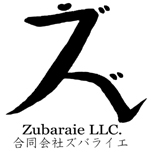日本語ではあまり用いられない品詞ですが、英語の「代名詞」は既出の”名詞”および”文章内容”の代用表現として大活躍します ― 代名詞の受ける内容が「語句レベル」の場合と「節(=文章内容)レベル」の場合の2つに大別して確認してみましょう。
●所有代名詞:【mine / ours / yours / his / hers / its / theirs】
♪My name is Yamada Taro. What’s 【yours】?
私の名前は山田太郎。あなたの名前は?
My name is Yamada Taro. What’s 【yours】⇒[your name]?
●【one】
♪“I want to eat kiritampo.” ― “I go to Akita prefecture on business [on] Friday, so I’ll buy 【one】 for you.”
「きりたんぽ食べたい」―「週末に仕事で秋田県に行くから、買って来てあげるよ」
I’ll buy 【one】⇒[kiritampo] for you.
「I’ll buy <one> for you」の<one>は「きりたんぽ」という食品の種別を概括的に指す代名詞です。和訳すれば「それ」となるので<it>との区別がややこしいですが、”it”は具体的に特定された一つの物事(例えば「田んぼ本舗のきりたんぽ」とかの特定銘柄の商品)を指すのに対し、”one”はある種別に属する物事(銘柄が何であれとにかく「きりたんぽ」と呼べるもの)を指す、という違いがあります。
●【none】
♪Half a bread is better than 【none】.
半分のパンでもないよりはマシ。
Half a bread is better than 【none】⇒[no bread].
●【so】
♪If English is a universal language, music is much more 【so】.
英語が国際言語だというのなら、音楽なんてもっとそうだ。
If English is a universal language, music is much more 【so】⇒[of a universal language].
上の言い換えでは、「much more 【of】 a universal language」の部分の前置詞【of】の添加に注意しましょう。ここを「(×)much more universal language」にしてしまうと、”more universal:より普遍的な”の意味(この場合の”more”は後続の形容詞”universal”にかかる副詞)になってしまいます。それでも文意自体は変わりませんが、ここでの【so】は【a universal “language”】の名詞”language:言語”を代用しているのであって、形容詞”universal:普遍的な”の代用語句ではありません ― “形容詞:universal”ではなく”名詞:a language”と結び付く”more”である以上、その品詞は”代名詞”であり、”代名詞”と”名詞”をつなぐには直結形ではダメ / 前置詞”of”を用いて「<代名詞:much more> 【of】 <名詞:a universal language>」とせねばならない、というわけです。
●【such】
♪“Have you got anything to drink?” ― “Like what?” ― “Whiskey, bourbon, champagne, or any 【such】.”
「何か飲むものある?」 ― 「どんな?」 ― 「ウィスキー、バーボン、シャンペン、その類いなら何でもいいよ」
・・・ Whiskey, bourbon, champagne, or any 【such】⇒[such kind of drink]
●【as such】
♪In case you are unaware, the Japanese sword is a killing weapon much as it is a piece of art and must be treated with care and awe 【as such】.
わかってないと困るんだけど、日本刀は美術品であると同時に人殺しの道具なんだから、注意と畏れをもってそれなりに扱わないといけない。
・・・the Japanese sword is a killing weapon [as] much as it is a piece of art and must be treated (with care and awe) 【as such】⇒[as a killing weapon].
「In case you are unaware」の部分には「条件節」だけがあって「帰結節」がない構造。補足して解釈すれば次のようになる:
条件節)In case you are unaware
あなたが意識していない場合に備えて
帰結節)[I must warn you]
私はあなたに警告せねばならない
条件節)In case you are unaware
あなたが意識していない場合に備えて
帰結節)[I must warn you]
私はあなたに警告せねばならない
●【this】
♪A general must send his men out to almost certain death. 【This】, without hesitation or agitation.
将軍は自らの部下をほぼ確実に死ぬとわかっている場へ送り出さねばならない。それも、何のためらいも動揺もなしに。
A general must send his men out to almost certain death. 【This】,⇒[And he must do so] without hesitation or agitation.
上の【this】とほぼ同じ意味は”that”でも表わせます・・・が、”that”は「接続詞」や「関係代名詞」と紛らわしいため、既出内容の代用代名詞として用いる場合には必ず【and that】や【at that】のような「接続詞・前置詞つき」の形態になります。
♪Smile is a powerful weapon: it can break down the wall of hostility, 【and that】 without harming anyone.
微笑みは強力な武器で、敵意の壁を打ち崩すことができる ― それも、誰一人傷付けることなしに。
Smile is a powerful weapon: it can break down the wall of hostility, 【and that】⇒[and it can do so] without harming anyone.
上の【and that】は、【this】でも【and this】でも代用可能。
♪Smile is a powerful weapon: it can break down the wall of hostility, and peacefully 【at that】.
微笑みは強力な武器で、敵意の壁を打ち崩すことができる ― それも、平和裏に、である。
Smile is a powerful weapon: it can break down the wall of hostility, and peacefully 【at that】⇒[on top of that / in addition to it].
●【same】
♪“I wish you good luck.” ― “【Same】 to you.”
「健闘を祈る」 ― 「同じく」
“I wish you good luck.” ― “【Same】⇒[I wish good luck] to you.”
●【vice versa】
♪If the boss trusts his staff with important tasks, they will exert themselves to justify his trust, and 【vice versa】.
上役が部下たちを信じて重要な仕事を任せれば、部下は信頼に応えようと頑張るだろうし、逆もまた然り(=部下が上役に信用されずにつまらん仕事しか任せられなければ、どうせ信用されてないんだからということで仕事に励まなくなる)。
「trust(=entrust) A with B」は「AにBを託す」の意味。より分解的に解釈するならば、「(Bを任せる、という手段を用いて)Aへの信頼を表明する」となる。
If the boss trusts his staff with important tasks, they will exert themselves to justify his trust, and 【vice versa】⇒[if the boss does not trust his staff with important tasks, they will not exert themselves due to his distrust].

質問があれば、当該文法事項最下部の「コメント」欄に投稿してください。
・・・他の受講者の皆さんにも役立つ質問だと判断された場合のみ(1週間以内に)表示されます。
ユーザーとして登録して「ログイン」しないと、「コメント」できません。
公開された質問への解答がわかった人は、自ら回答者となって、積極的に投稿してみましょう!・・・(ヘタに投稿してマチガイだったらどうしよう?)とかの心配は不要です: 誤答や言葉足らずはこちら側でチェックしますし、公開をはばかられる茶々入れや野次の類いは皆さんの目には触れさせません。
・・・Teaching is the best way of learning(教えることは最高の学びである)・・・自ら学んだ知識は、他者に役立てることで、ますます磨かれ、揺るぎない英知として皆さんの脳裏に強固な位置付けを占めるようになるものです・・・ダイヤモンドの原石磨きの場として、この「コメント道場」を積極活用してくださいね!
一般の掲示板では、自分の質問に誰かが何かコメントを付けるたび、それなりのレスポンスを返すのが「作法」ということになっています・・・が、この「コメント道場」では
●回答者が最初に発した疑問点が解決した場合にはシンプルに
♥Got it, guratche!♥・・・発音は「ガリット・グラッツィェ!」意味は「了解(英語)、感謝(イタリア語)」
と返答して「御挨拶」はそれでおしまい、ということにしましょう。
・・・ここは「おともだち」と交信するための仲良し広場ではないので、「白山羊さんと黒山羊さんのお手紙交換」みたいなことを延々繰り返していたのでは質問者・回答者双方にとって時間・労力・忍耐力の空費ですし、それ以外の受講者の皆さんにとっても肝心の「質問」・「回答」の部分が「あいさつのこだま」の陰に隠れてしまったのでは迷惑な話になってしまいます。
・・・というわけで、以下の二点の約束事を定めておきますので、皆さんどうぞ御納得の上で質問・回答ください:
◆回答者は、質問者から自分への直接のお礼のコメントがなくても、悪く思わないこと◆